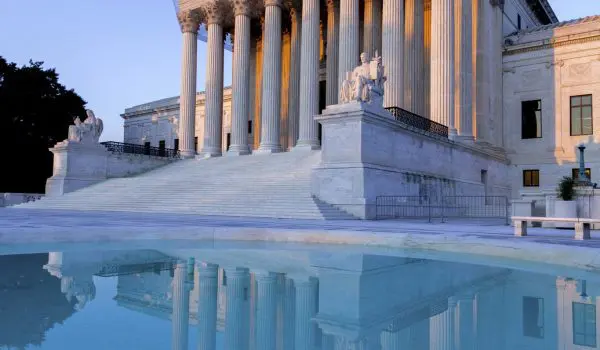The U.S. Supreme Court recently acted on the lawsuit filed against President Donald Trump, who had blocked some users on Twitter. A lower federal court, and a federal court of appeals, held he could not. They reasoned that it was a violation of the users’ First Amendment rights for the government (in this case, the President) to prevent them from accessing a limited public forum.
On April 5, 2021, the Supreme Court vacated the lower court’s decision, and remanded to the lower court to dismiss it as being moot. Biden v. Knight First Amendment Institute At Columbia Univ., 2021 WL 1240931 (April 5, 2021). (And yes, the new President was substituted in for the outgoing President according to long-standing practice.)
The issue mooting the case was minor, but important: a new President would no longer have the authority to block users from the account at issue—@realDonaldTrump. Therefore, the government would not be acting on that account in the future, and there would therefore be no future First Amendment violations from @realDonaldTrump blocking people.
This begs the question: what now? With the lower court decisions vacated, are government accounts now free to block users from social media accounts? The resounding answer is no. This was an unusual situation, where a personal, then government, account ceased being a government account when a new presidential administration took over. (There were arguments that this Twitter account was not a “government account,” but the White House, the Department of Justice, the President’s Press Secretary, and his Deputy Chief of Staff for Communications all treated the tweets coming from that account as official statements from the President.)
Why is it business as usual (no blocking from government social media accounts?). All remaining precedent and decisions prohibiting the government from blocking users from official government accounts are still in effect. For example, Davison v. Randall is still good law. That decision held a public official could not ban a user from her official Facebook page, for the same reasons cited in the now-vacated Twitter decision. 912 F.3d 666 (4th Cir. 2019); Attwood v. Clemons, 2021 WL 1020449 (N.D. Fla. 2020) (allowing jury trial on civil rights claim against a Florida state representative who had blocked a user from both Twitter and Facebook); Robinson v. Hunt County, 921 F.3d 440 (5th Cir. 2019) (reasoning that the First Amendment prevented a sheriff’s office from blocking a user from its Facebook page; that action was unconstitutional viewpoint discrimination).
In sum, the law still stands: government entities should not be blocking users on government accounts. The Supreme Court’s decision rests on a unique case of mootness that will likely not apply to most government social media accounts.
If you have any questions regarding Ohio’s Sunshine Law or Ohio’s Public Records Act, please feel free to contact Thomas Allen, Brodi Conover, or any other member of Frost Brown Todd’s Governmental Services practice group.

